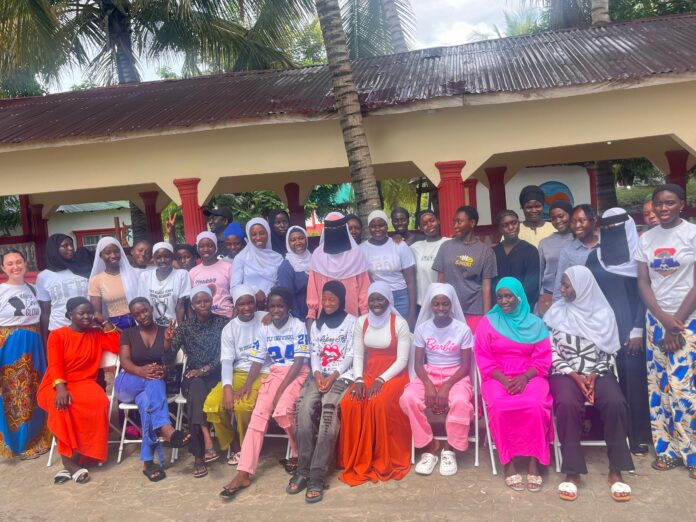By Alieu Jallow
For many teenage girls in The Gambia’s Upper Nuimi District, menstruation is more than a monthly biological process; it’s a barrier to education. According to UNICEF, one in 10 African schoolgirls misses classes during their period due to a lack of access to sanitary products, contributing to learning gaps and school dropouts.
In communities where parents struggle to afford the rising cost of disposable pads, menstrual poverty has become a silent crisis. Some girls resort to unsafe alternatives, while others stay home altogether, missing crucial lessons.
But hope is taking shape quite literally in the form of reusable menstrual pads. ActionAid International in The Gambia is currently holding a summer camp training for teenage girls in Upper Nuimi, teaching them how to make affordable, hygienic, and eco-friendly sanitary pads. The initiative will not only reduce absenteeism but also boost the confidence of young girls who no longer feel forced to skip school during their periods.
Binta Saidy, a student at Sita Nunku, is a success story of this campaign to minimise menstrual poverty. After benefiting from the training, she and her peers formed a movement within their school to help address the challenges teenage girls face during their periods.
“After the training, we formed a club called Girls for Social Change Movement to teach our colleagues how to make reusable pads and maintain proper hygiene to prevent body odour. So far, we have trained over 25 students, which is helping keep them in school. I will continue training my fellow students until we see even greater change,” she said.
Kaddijatou Darboe, a 17-year-old from Bakalarr Upper and Senior School, shared how absenteeism during her menstrual period affected her grades, dropping her top subject, Accounting, from an A to a B3. Determined to make a difference, she is poised to discuss with her school management the idea of allocating a day in the school calendar for step-down training.
“From this training, I will organise a sensitisation campaign for my colleagues. I’ll work with the school management to train them so we can usher in the changes we desire,” she says.
Saffiatou Jallow admits she misses up to a week of school each month due to her period, which has had a significant impact on her academic performance. She plans to target her community, especially teenagers who have dropped out of school or never had the opportunity to attend, and she calls for government support.
“I am calling on the government to support us by providing hygienic materials like sanitary pads, and on civil society organisations to equip young girls with knowledge and skills to help change lives,” she says.
Saikou Darboe, Local Rights Manager for North Bank and Lower River Regions, underscored the importance of supporting young girls during puberty. He noted the struggles of parents whose daughters miss school due to menstrual cramps and lack of sanitary pads, explaining that this was the motivation behind ActionAid’s intervention.
“We realised the need to discuss these issues with the students and find ways to help them. That’s where the idea for this activity came from. We brought together 30 students from different junior and senior secondary schools, trained them, and gave them packages to go back and retrain their peers. This year, we trained another 25 students, with financing from ActionAid. There is still a need to reach more people,” he says.
Mr. Darboe added that while some schools do provide menstrual pads, they are not enough to meet students’ needs.
“I call on the government, as the primary duty bearer, to increase the number of pads available and to educate teachers on making reusable pads and menstrual hygiene so they can better support girls in school. This is more sustainable than even what ActionAid is doing,” he emphasises.
The girls are united in their call for stronger government action to combat menstrual poverty. They suggest providing schools with menstrual hygiene materials and partnering with organisations like ActionAid to expand training to more schools nationwide.
For these teenagers, reusable pads are more than fabric and thread; they are tools for dignity, equality, and a better future.




